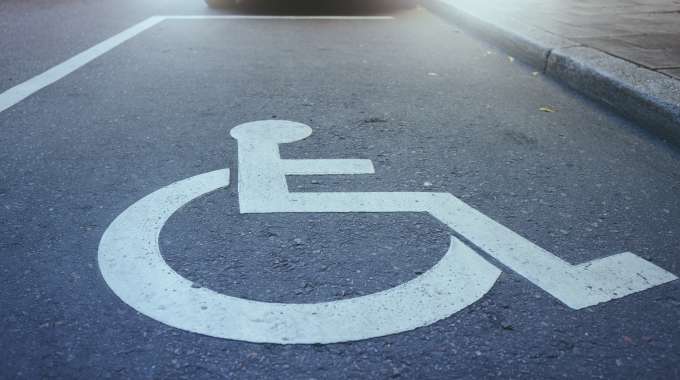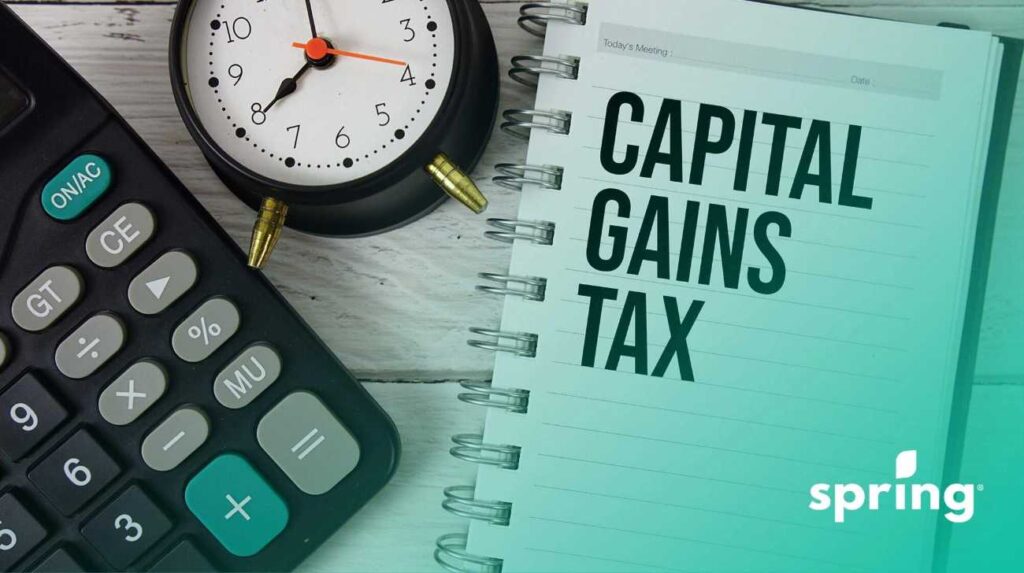House prices, particularly in cities, have skyrocketed making it difficult for first-time buyers to get onto the property ladder. But with the Canadian real estate market of today, many argue that houses aren’t always considered to be a solid investment anymore.
One thing is certain: you shouldn’t make your house a sole or primary investment. In fact, in some cases, you shouldn’t purchase a house at all. Renting and investing your money elsewhere is sometimes a better option.
Whether to buy or rent depends a lot on the individual’s circumstances and the region they live in. To help you navigate through the buy versus rent decision, Spring Financial has compiled a complete guide below. We hope that by the end of this article you are able to make an educated decision and find your optimal living situation!
Pros and Cons of Renting a House
Renting occurs when a property owner lets you live on their property in exchange for a fee, better known as rent. Most individuals will rent at some point in their life. Let’s explore the advantages and disadvantages of renting.
The Pros of Renting a Home
- Low Initial Costs. In the beginning, your initial costs are low.
- Little Paperwork. The only paperwork you need to complete in the beginning is your lease agreement.
- Flexibility. With a lease, you are much more flexible with your living scenario. If you want to move to a new neighbourhood, town or city, you can pack up and move easily.
- No Repairs and Maintenance. If something breaks or needs to be maintained on your rented property, it is entirely your landlord’s responsibility. You don’t have to worry about carrying costs.
- No Bad Investments. Since you aren’t buying, you don’t have to worry about losing money on the purchase. In fact, you can use your savings to invest elsewhere.
- Building Your Credit Score. If your landlord reports to the credit bureau, your rent payments will build credit. Be sure to make them on time and in full for healthy credit building.
- Bad Credit. If you have bad credit, you can usually find a landlord who will rent a space to you.
The Cons of Renting a Home
- Change in Monthly Rent Amount. When you renew your lease, your landlord can increase the amount of rent you pay each month. It’s perfectly legal, although, it can strain your budget.
- Multiple Moves. Renting can be unreliable which could result in you having to move multiple times.
- Landlord Can Sell. Your landlord can sell the property at any point in time which means you’d have to move out. The new owners may keep renting the space to you, but don’t rely on it.
- Limited Options. You may not be able to find a good rental property depending on the vacancies in your area.
- No Tax Benefits. Renting does not allow you to access tax benefits related to owning a home.
- No Equity. One of the biggest drawbacks of renting is that you don’t get to take advantage of any spurts in house price growth or market bubbles. If your neighbours are all homeowners, they may all be getting wealthier thanks to the rising price of property in your neighbourhood. Unfortunately, if you’re a renter, you won’t be.
Pros and Cons of Buying a House
A property purchase could include a condo, attached house, or detached house among other property types. Below are the pros and cons of purchasing a home.
The Pros of Buying Your Home
- Build Equity and Credit. Buying a house can be an investment which could result in you earning equity. Equity is the value of your home minus what you owe. In addition, making mortgage payments on time and in full is one of the best ways to build credit.
- Stability. Owning a home means you’ll be in one place for a while. Stability is often beneficial, especially for those with young families.
- Freedom. Owning a house means that you don’t have a landlord to abide by. If you want to blast loud music, go for it! If you want to paint the walls, go right ahead!
- Potential Tax Benefits. Canadian citizens typically get tax breaks for owning a house.
The Cons of Buying Your Home
- Initially Expensive. The initial costs of buying a home can be very expensive.
- Chance of a Bad Investment. You may earn equity in your home, but there is a chance you made a bad investment. If your house declines in value, you can lose a significant amount of money. Many markets are experiencing increased home prices but low inventory making home investments riskier than ever before.
- Paperwork. Buying a home requires that you complete a lot of paperwork in the beginning.
- More Expenses. On the surface, having a house seems easier because you have more control over the costs. In reality, those costs can add up quickly. Carrying costs of owning your own home include insurance, taxes, and utilities.

Pros and Cons of Rent to Own Homes
Unlike in the United States, rent to own contract arrangements are quite rare in Canada. That being said, the market could easily change given the current state of the Canadian housing market. How rent to own works is you rent a property for a certain period of time outlined in your lease. At the end of your lease, there is an opportunity to buy the property.
Let’s explore the advantages and disadvantages of this home purchase option. Keep in mind that the terms of a rent to own property agreements can vary a lot depending on the landlord. Be sure to read the fine print so you fully understand what you’re getting yourself into.
The Pros of Rent to Own Homes
- Alternative for Individuals with Bad Credit. People who have bad credit often have difficulty obtaining a mortgage. Rent to own arrangements are a way around a mortgage that simultaneously helps build credit and helps you work towards home ownership.
- Option to Buy. Most rent to own agreements have an option to buy, but it is not mandatory. If you decide you don’t like the property or want to move elsewhere, you aren’t required to go through with the purchase.
- Payments towards Down Payment. Some landlords will collect additional money on top of your rent that goes towards your future down payment on the purchase. This can take some stress away from having to save on your own.
The Cons of Rent to Own Homes
- Future Purchase Price. Some leases don’t have locked in prices. Instead, the purchase price will be based on the appraised value which may not be affordable to you.
- Initial Fees. Rent to own initial fees are sort of a hybrid between rent and own initial fees. Usually, you need to pay an initial fee that is 2% to 4% of the agreed upon purchase price. This amount shows you’re committed to the purchase. The amount you pay will either go towards your down payment or be discounted against the purchase price. If you don’t go through with the purchase, this amount is often non-refundable.
- Repairs and Maintenance. Unlike regular tenants, you’ll be responsible for the repairs and maintenance of the property while you’re renting.
- Mortgage Risk. When you buy the property at the end of the lease, you will still need a mortgage. There is a chance that you won’t get one, even though you’ve been building credit for the duration of your term.
Comparing Rent vs Buy Costs
Part of your decision process should include a comparison of rent and buy costs. One may be astronomically more expensive which can help you make your decision easily. Alternatively, the costs could be similar and you might have to consider other factors instead.
When renting, your monthly cost is generally stable and specified in your lease. Depending on the lease, you may or may not have to pay utilities on top of rent. Be sure to inquire with your potential landlord whether utilities, such as internet, gas, electricity, water and cable, are included in the rent cost.
When you initially move in, you may have to pay some one-time costs too. First and last rent deposit, internet or cable installation, furnishing costs and moving fees are all initial costs to consider. Fortunately, one cost you do not have to consider is repairs and maintenance. Your landlord owns the property, if something breaks, it is their responsibility to fix it. To determine how much rent you can reasonably afford, you can use a rent calculator.
The very first thing to consider with mortgages is the down payment. Nearly all lenders require a down payment between 3% and 20% of the total property’s price. The more money saved for a down payment, the more favourable loan terms you can expect, such as lower interest rates. Your other initial cost for a mortgage is the closing cost which tends to be somewhere between 2% and 4% of the total property price.
After you consider the initial costs, you will need to consider the monthly costs. A mortgage payment calculator can help you estimate how much your monthly mortgage payments will be. If you make a down payment lower than 20%, you’re required to pay private mortgage insurance which is another monthly cost.
Other ongoing expenses to consider when owning a home include:
- Property taxes
- Condo fees
- Insurance
- Repairs
- Maintenance and utilities
With rent to own options, you will have to read and decipher the agreement to determine your exact initial costs of both renting and buying. Rent to own agreements vary quite a bit depending on the landlord.
Part of your initial costs will be the initial costs to rent and the rent you pay until the buy option becomes effective. After that, you will need to consider the home purchase expenses, such as the down payment. Finally, as with mortgages, you will need to consider the monthly costs of owning a home. Your costs for a rent to own option will be a hybrid between rent and buy costs.
The ‘Rent, Don’t Buy’ Movement
Banks, governments, and even your parents probably harp on about how important it is to buy and not rent. In their minds, rent is ‘throwing away’ money instead of contributing it towards a mortgage as an investment. Keep in mind that this is an old mentality which was wise to follow a couple of decades ago, but is modernly dated.
As you’re probably aware, housing prices are sky high right now, so what are the chances that you’re going to make a huge profit off a house that is already overly expensive? Many are asking themselves this question which has resulted in the ‘rent, don’t buy’ movement.
People are starting to invest their money elsewhere while renting because it is not likely that they’ll make lots of money or equity on a home investment. In fact, stock markets have more promising returns in the long run than housing markets do. Furthermore, most consumers are treating a home transaction merely as a purchase, not an investment.
When you purchase an expensive house, nearly all your cash will go towards the mortgage and other expenses of owning a home. This leaves you with little disposable income that you could invest elsewhere. In some ways, this is advantageous because you’re forcing yourself to save, otherwise known as forced savings. That being said, if your house doesn’t increase in value, your investment may not be as lucrative as you hoped.
The ‘rent, don’t buy’ movement is geared towards financial decisions. Owning a home is a lifestyle decision just as much as it is a financial decision. Just because you might lose money on a home that does not mean it is a poor choice. Buying a home gives you more stability and freedom which is what some people want most. If a home purchase is right for you, you should ensure that you are investing elsewhere too.

Other Factors to Consider When Making Your Decision to Rent or Buy
Deciding whether to rent or buy can be a challenging decision. After all, it is a decision that will impact many aspects of your life. As with all major decisions, it is helpful to consider your current position and future goals. To help you make your decision, below are a list of questions to ask yourself when deciding to buy or rent:
- What are your financial, career and social goals?
- What option works best with your budget?
- Are you comfortable with the responsibility of owning a home?
- How much money do you have in savings?
- Do you plan to stay in one place for a long period of time?
- Are the housing market conditions favourable for a house investment?
- Can you rent out part of your property for extra income if you need it?
- Do you have unsteady and variable income?
- Are there rent controlled apartments available?
- Do you have existing debt that you need to pay off?
- How important is high disposable income to you?
As you can tell by now, the decision to rent or buy is not clear cut and depends on your individual circumstances. The Government of Canada recommends this rent vs buy calculator to anyone who wants to work out the math behind their decision to determine their best option.
How Spring Financial Can Help
Whatever your financial goals may be, Spring Financial can help. If you’re forced to rent because of poor credit, we have credit building products for you. If you’re purchasing a home, we can help cover moving and furnishing costs. If you need help consolidating your debt so you can reasonably afford rent or a mortgage, we can help. Spring Financial is here to help those looking to better their lives and finances.
What About Car Leasing vs Financing?
Buying a home is likely the largest purchase you’ll make in your lifetime. After that, a car purchase will usually be your next biggest financial commitment. So, is it better to lease or finance a car? As with home purchases, your decision depends on a lot of specific factors which vary for everyone.
Let’s take a closer look at the pros and cons of leasing and financing a vehicle.
Advantages of Leasing a Car
- Smaller Payments. As a general rule of thumb, lease payments are much lower than loan payments. Not only is it more affordable with your budget, you can afford a nicer car with all the bells and whistles.
- Option to Purchase. At the end of your car lease term, you can return the car to the dealership or buy the car. Some prefer to lease another car while others want to own the car they’ve been using (Lease to Own). Either way, it is great to have the choice. Buying a car at the end of a lease term is a good option for individuals with bad credit who cannot qualify for a car loan.
- Potential Tax Benefits. If you use your leased car for business and your employer does not pay for the car, you can usually deduct the lease payments on your tax return.
Disadvantages of Leasing a Car
- Mileage Limits. Leases have limits on how many kilometres you can put on the car. If you go over the set amount, you have to pay additional fees.
- Wear and Tear. Every car will experience normal wear and tear. If the car is returned in a condition that exceeds normal wear and tear, you will be responsible for fixing the damage. Often you will have to go to the auto shop chosen by the dealership which could be costly.
Advantages of Financing a Car
- You Take Ownership. Once you finish your loan payments, you’ll fully own your vehicle. Cars last longer than ever now, it is a good purchase to make if a car is necessary for everyday life.
- Flexibility. Cancelling a financed car agreement has less severe repercussions and costs than cancelling a lease does. If your situation ever changes significantly, it is good to know that you can easily get rid of your car.
- Modifications. If you want to modify your car, you can do so when the car is financed. Leases do not allow you to alter the car at all.
Disadvantages of Financing a Car
- Negative Equity. Cars depreciate at a very rapid rate. There is a chance that you could accumulate negative equity on a financed car, particularly those with long loan terms.
- Purchase, Not an Investment. It is extremely rare to earn a profit on a car purchase. Cars are not cheap and most of the money you put into a car will be an expense, not an investment. While this is true with leases too, leases tend to have lower costs.
It’s best to lease if you don’t want the long term commitment of a financed car and you don’t drive a whole lot. In addition, if you don’t want to be responsible for routine wear and tear costs, leasing is best. On the other hand, if you need a car for the long term and can afford the bigger costs, financing is better. At the end of the day, your decision depends entirely on your preferences and lifestyle.








